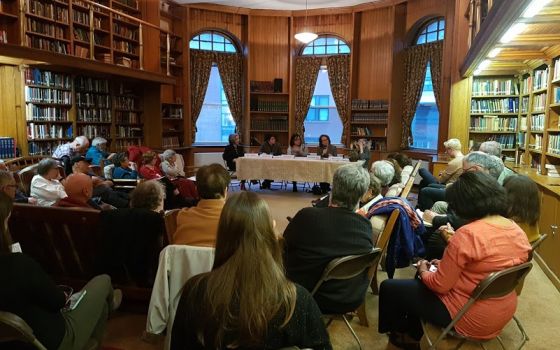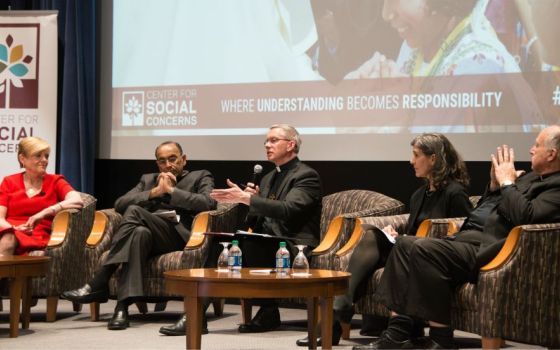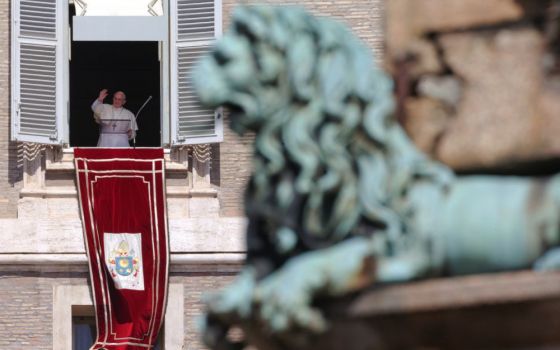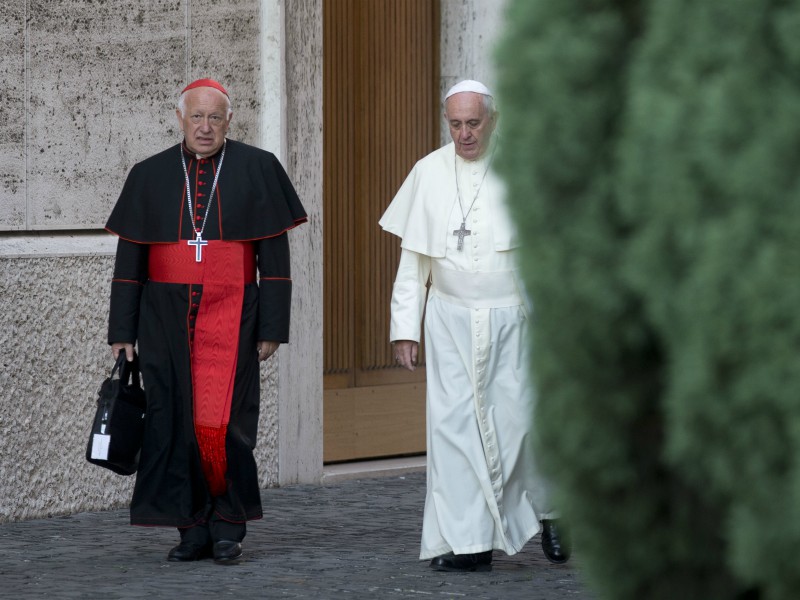
Pope Francis, right, walks with Chile's Cardinal Ricardo Ezzati to a session of the synod, a two-week meeting of cardinals and bishops from around the world, at the Vatican, on Oct. 9, 2014. (AP/Alessandra Tarantino)
On Feb. 11, Pope Francis issued a poignant letter to U.S. bishops with grief in his pen, urging a nation to rediscover its own soul. He spoke of mass deportations that have torn apart families, of lives discarded like refuse. His words were clear: No policy can stand if it does not uphold human dignity. No law is just if it turns its back on the vulnerable. These are not abstractions. They are flesh and bone. They are mothers and fathers, children and elders, seeking what any of us would seek in the face of danger — life.
Perhaps, in a nation preoccupied with what it stands to lose, we might consider all we stand to gain. To welcome the stranger is to be changed by them.
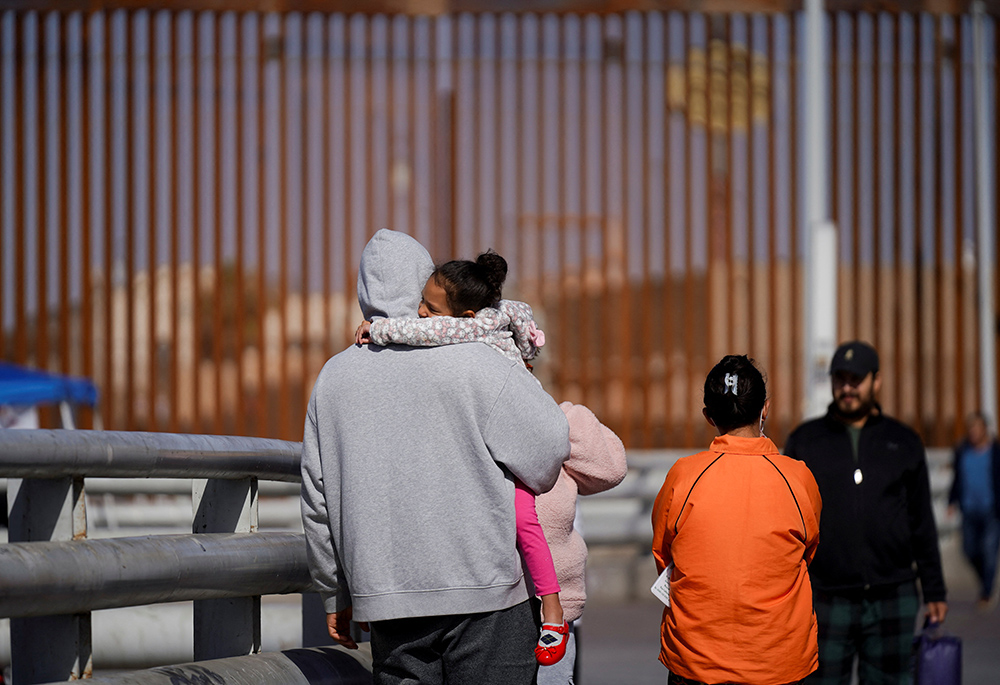
Cuban migrant Marielis Arosh and her family walk with other migrants after their CBP One app asylum appointment was canceled on the day of U.S. President Donald Trump's inauguration, near the border fence Jan. 20 in Mexicali, Mexico. (OSV News/Reuters/Victor Medina)
Scripture affirms this — refusing to render the sojourner invisible. The law of God is clear: the foreigner is to be treated as one of our own (Leviticus 19:33-34). The prophets speak with urgency — do not oppress, do not exploit, do not turn away (Jeremiah 22:3). These are not suggestions but sacred imperatives. To honor the immigrant is not simply charity; it is the recognition of divine image-bearing. It is to see as God sees — to call them beloved.
Jesus made this plain. He declared that to welcome the stranger is to welcome him. To care for the imprisoned, the sick, the hungry — is to care for him. There is no distinction between our love for Christ and our love for those the world has cast aside. A faith that does not kneel to meet the needs of the suffering, has forgotten the one it claims to follow. The way of Jesus was not one of exclusion, but of invitation. He moved beyond the barriers of culture and religion, for the sake of love. Like him, we too must take up this practice of radical hospitality. It is not optional. It is the very measure of our faithfulness.
The church cannot be silent. We who claim to love Jesus must remember that he, too, was once a child carried across borders by parents desperate to protect him from the violence of an empire. The holy one, a refugee. If we are to follow him, we must — as Pope Francis has urged us — refuse the narratives that discriminate and cause suffering to our migrant siblings. We must protect and defend them. We must not turn away.




